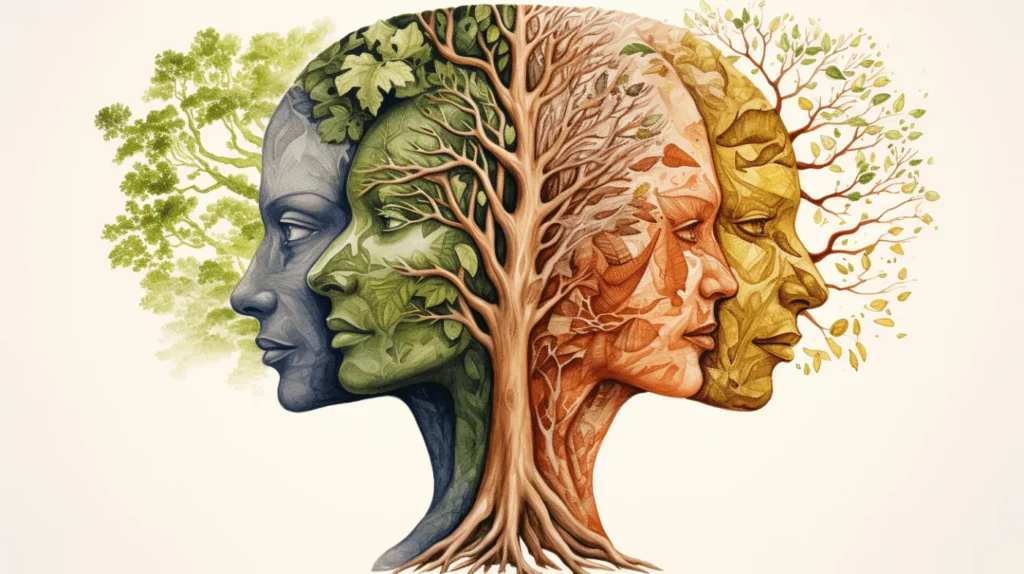Science
The Monk Who Saw the Future: Did an 11th-Century Benedictine Beat Astronomers?
17 February 2026

“No tree, it is said, can grow to heaven unless its roots reach down to hell”—these words by Sigmund Freud’s younger colleague, psychologist Carl Gustav Jung, are a strikingly accurate metaphor of what it takes to discover the truth about yourself. What awaits the brave souls that dare to set out on such a unique journey?
People naturally strive for personal development. Abraham Maslow certainly knew what he was doing when he put self-actualization on the top of his hierarchy of human needs. The peak is hard to reach, but the life of anyone who does not broaden their horizons becomes incomplete. However, it is just as important to understand that personal growth entails the discovery of one’s virtues and vices alike.
Kazimierz Dąbrowski, a Polish psychologist and founder of the Mental Hygiene Institute, described human development as a series of disintegrations. A combination of experiences and genetic factors triggers a state in which personality loses coherence and “falls apart.” Since this is accompanied by symptoms resembling mental disturbances, the person affected feels anxious and surprised at themselves. Their relationships with other people become tense and suffering creeps in their everyday life. Nevertheless, disintegration can also be a positive phenomenon as it provides the basis for further development and more creative behavior.
American psychoanalyst Erik Erikson was of a similar opinion regarding personal development. According to him, human life goes through eight groundbreaking stages. Each stage brings around specific tasks which necessitate changes in the attitude toward life and trigger a developmental crisis. During that time, personality is fragile but its growth potential becomes high. In other words, every such crisis can either make you stronger or leave you sadly weakened. For example, kids in their early childhood acquire either autonomy or shame, which exerts a supporting or disturbing effect on every subsequent developmental stage.
The suffering caused by personal development stems mainly from the challenges faced, and those include gaining new knowledge of oneself and the world. Merely reading about the simulation hypothesis or genetic determinism can trigger an existential crisis in many people. What sense would life make if researchers proved that free will does not exist and human behavior is fully controlled by genes? What would we do if it turned out that we live within a piece of software developed by technologically advanced civilizations?
Still, facts are best confronted gradually so that the learning process triggers a positive disintegration which provides space for growth. Take free will: some researchers, such as historian Yuval Noah Harari, believe that people are algorithms. Consequently, the processes taking place within the brain are either genetically determined or accidental—but certainly not free. Such reasoning proves partially right; after all, nobody chooses their own desires. We cannot make ourselves want anything; instead, cravings seem to emerge in our consciousness. Where do they come from? This remains unknown, but genes definitely play an important role here. Whereas one takes the final decision on what to choose (although Harari reckons that even this is untrue), childhood traumas and other mental patterns considerably reduce that freedom to a surprisingly limited scope.
Still, Harari’s views are in the minority; most philosophers support compatibilism, according to which determinism does not preclude free will.
In 1971, American psychologist Philip Zimbardo conducted the famous Stanford Prison Experiment. He arranged a mock prison in the university basement and gathered a group of volunteers who underwent a psychological assessment to exclude any pathological tendencies. Then, they were randomly assigned to the roles of prisoners or prison guards and received outfits and instructions. However, the carefully prepared project soon turned into hell: the guards mentally harassed the prisoners, who in turn began to behave like real criminals. Insults and sadism became a daily occurrence. Consequently, an experiment scheduled for two weeks was interrupted after just six days. The phenomenon observed was labeled as “the Lucifer effect”—a transformation of ordinary people into perpetrators of evil deeds in appropriately arranged circumstances.

Zimbardo has proved that evil does lie dormant within us and it sometimes takes very little to wake it up. Indeed, we do not differ from the Prison Experiment participants. Still, development does not end with the inevitable discovery of the dark side. On the contrary, it is important to know that this part of human nature has a purpose and may prove useful.
Jordan Peterson, professor emeritus of psychology at the University of Toronto, reckons that people who cannot be cruel will sooner or later become victims of those who can. In other words, both self-esteem and respect from others require a dose of assertiveness. This motif runs through numerous myths and tales, where a hero must descend into their own shadow and break the rules in order to do the greater good. Take Prometheus, who stole fire from the Olympian gods and brought it to people. Naturally, the inner evil has to be kept under control and utilized only in justified cases. Still, being harmless is of no use; one becomes truly good whenever consciously refraining from committing a bad deed.
Kazimierz Dąbrowski writes that the domination of arrogant, tough people over subtle and sensitive ones is clearly visible in daily life. While the former typically have few doubts and find it easy to manage others, the latter usually arouse astonishment and pity. Seeking to shake off the pressure, they tend to escape into the world of creativity, nature, and ideals such as goodness and love. Unfortunately, this makes others push them on to the sidelines. No wonder many people doubt that it is possible to strive after practical wisdom and be happy at the same time.
Luckily, research results provide a positive answer. One study measured wisdom using a range of statements divided into three groups:
– cognitive (for example “Ignorance is bliss”),
– reflective (“I would feel much better if the current conditions of my life changed”),
– emotional (“I know there are people in this world to whom I could never take a liking”).
The study outcome showed a positive correlation between wisdom and the feeling of happiness in life, especially regarding the reflective scale. Although the connection was only moderately strong, at least we now know that the two variables are not mutually exclusive. Hopefully this fact will encourage everyone who wishes to live consciously and strive after the truth: life will certainly reward them for their effort.
Tłumaczyła: Eleonora Joszko.
We recommend:
Science
17 February 2026



Zmień tryb na ciemny